Things have been moving right along here in the Transvaal with gradual but noticeable changes — one being the weather which has taken on a refreshingly autumnal feel over the last few weeks. Unlike last year however the cooler season did not leave behind the rains on arrival, but instead we’ve had a concurrence of both. The veld is still green and the ‘dams’ (seasonal ponds mostly for watering cattle) are still brimming with water and an abundance of critters — from insects to fowl to amphibians. So too the surrounding tree canopies have been alive with goshawks happily munching on frogs snagged from the edges of the marsh below.
A couple of weeks ago we had an abundance of precipitation and, unlike typically, it came in long episodes of slow, drenching rains over two days. In fact, had the deluge lasted much longer, I would have been temped to trawl for tilapia in our backyard — covered as it was, fence to fence, in water. Such ephemeral pools had sprung up everywhere including the central yard of our school, and this sudden emergence seemed to offer an irresistible invitation to minor mischief among many of the learners who made it in that Thursday. The scene reminded me of those ‘snow days’ we occasionally used to have growing up in the mid-Atlantic region: with some teachers delayed on the roads and classes beginning late, a general carnival atmosphere ensued — everything there but the volant snowballs. Instead of standing for the daily assembly, many children could be seen scampering around the growing puddles and under the gushing eves of the school — apparently running their own trials on the adhesion properties of water. The downside of their empiricism became apparent only later that morning when they received an intimate if involuntary introduction to the phenomenon of evaporative cooling — itself a prolonged process under such cool, humid conditions.
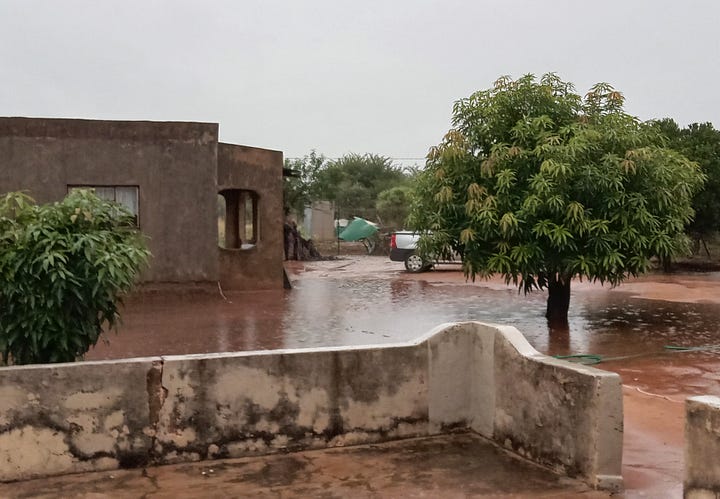
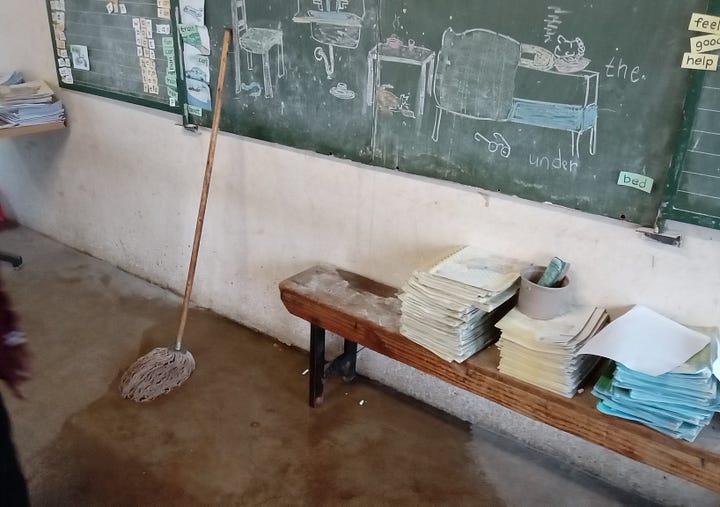
Eventually the learners did settle in — with some pitching in to prepare the classroom by moving furniture and mopping the floor. One eager eight-year-old took it upon herself to correct my apparently novice mopping technique — demonstrating to good effect the efficacy of wringing by hand instead of lazily trying to tamp out the water under the sole of my shoe. I admired her ardor and appreciated the gesture. As with those snow-days of yesteryear, lessons were affected as well — having to be modified in consideration of the majority of learners who were not there to partake. So going beyond the prescribed writing activities, time was given over to illustration, and how to sketch figures freehand — one line or curve at a time (instead of the common practice of tracing or connecting dots); not surprisingly, the most popular subjects turned out to be dogs and snakes. I’m not sure how much headway was actually made toward this end, but a palpable sense of enjoyment prevailed.
Getting away
This term’s schedule is odd in that, in its early stages, a four-day Easter recess is followed in short succession by a full week-off due to the juxtaposition of two national holidays: Freedom Day and International Workers Day. So I used the occasion to vacate for a few days to a nearby game lodge that I’d visited before — the ease and convenience for me overriding any downsides owing to familiarity. And there I stayed — taking in game drives, leisurely nature walks, and enjoying a dram or two at ‘the watering hole,’ which in this case serves both humans and resident wildlife (that visit their own version situated just beyond a reinforced electric fence).
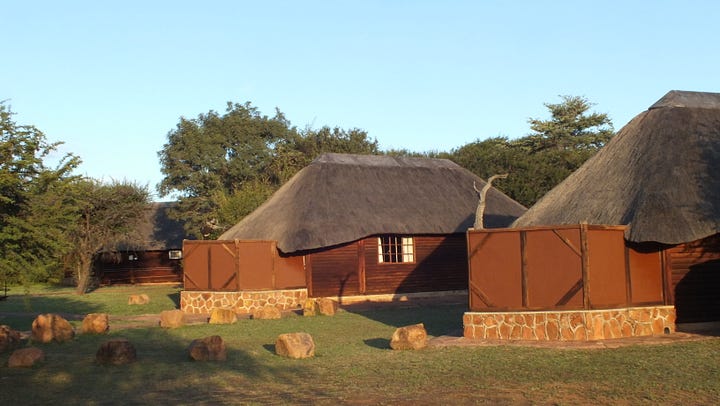
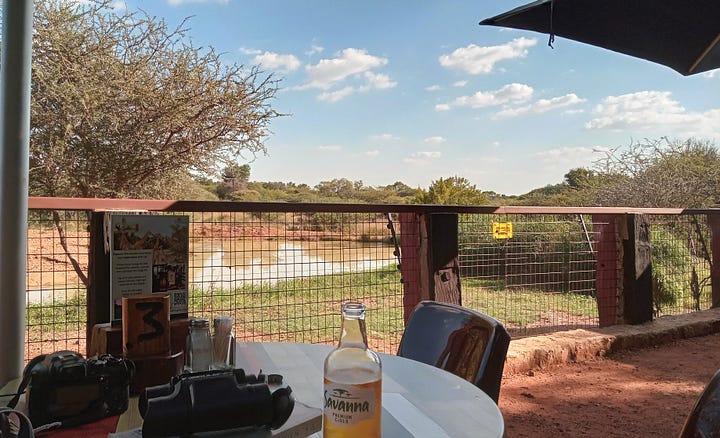
The newly completed nature trail — in addition to a patch of riparian woods that harbors a troop of vervet monkeys and a small marsh that is home to moorhens, crakes and kingfishers — features some droll curiosities, the likes of which might be expected in a Halloween theme park somewhere like Salem, Massachusetts. Certainly the rangy golden orb-web spiders — whose multi-dimensional webs span four to five meters alongside and sometimes across the trail — create a creepy effect for those faint of heart. After grappling my way through a couple of these sprawling webs, I am convinced that you could hang a load of wash from their taut, high-tensile top-lines. Farther along, the macabre ossuary exhibits the skulls of many of the ‘big five’, and a few of the ‘ugly five’ (so designated by author Julia Donaldson) as well. Indeed the lion seems equally menacing even in death. If this weren’t enough to indulge one’s ghoulish fantasies, one could visit the ‘poachers camp’ to inhabit for a moment Africa’s game refuge underworld. It’s convincingly depicted right down to the impala skull, the campfire set-up, chipped enamel coffee-pot, makeshift tarp shelter and, most chillingly, the barbaric network of spiraling wire snares.
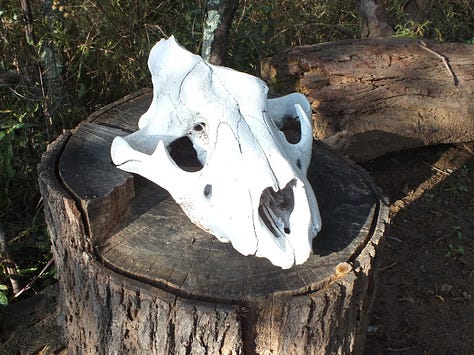
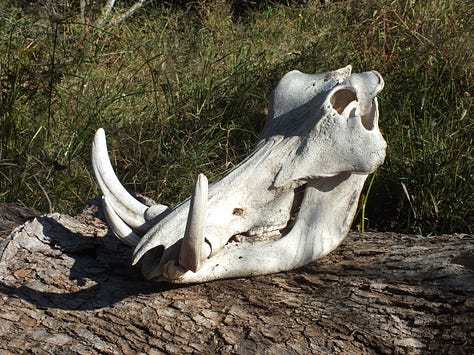
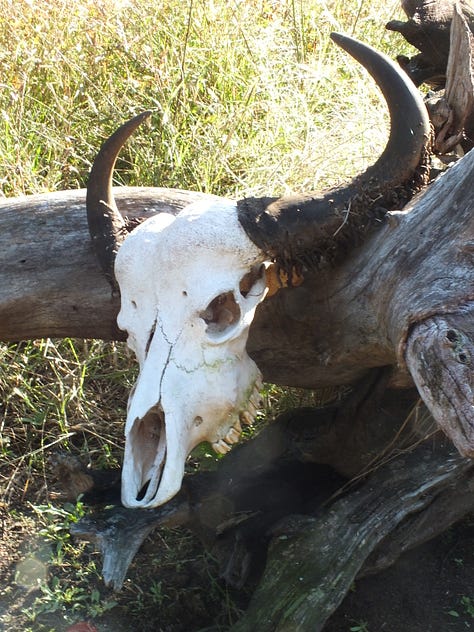
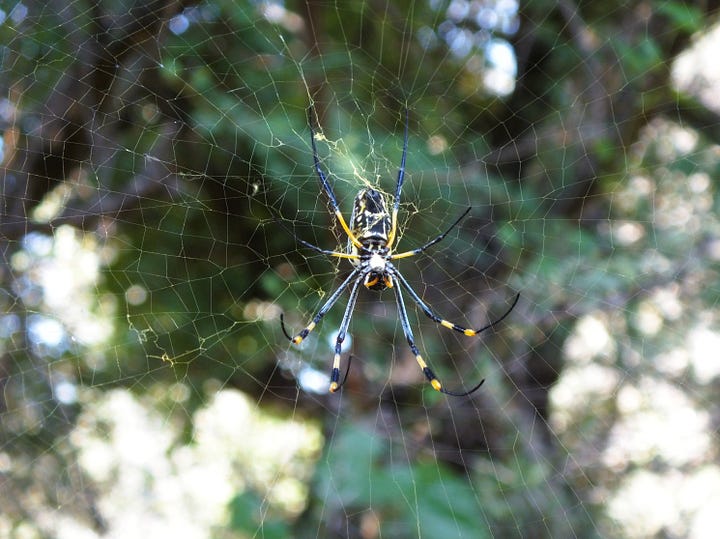
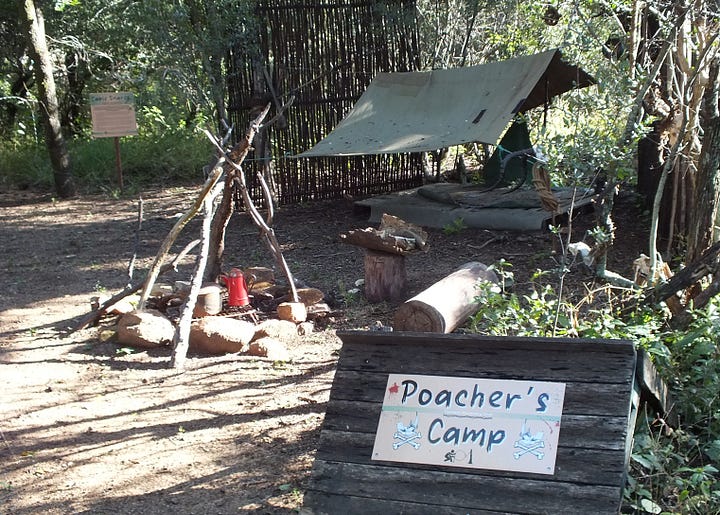
News from the home-front
On the first morning of my stay — as I prepared for an early game drive — I learned of some developments regarding our agency, which had been under prolonged scrutiny by the Department of Government Efficiency (DOGE). As I reported in ‘a holding pattern,’ we had been awaiting news on this front for a few weeks and, although not final, the word was that — in spite of DOGE mandated “restructuring”— the Peace Corps would be permitted to continue its field operations in their current form. This of course was a big relief for many: it’s nice to think that we will be able to move ahead and perhaps make plans beyond our next meal. But it’s hard to imagine how a substantial downsizing of the staff at Peace Corps’ Washington, D.C. headquarters will not impact its operations in Africa, South America and the South Pacific. Every volunteer in the field depends on support in the areas of administration, training, projects, security, and health care — much of which originates in Washington. This prospect may be a little less daunting for those of us who are already in placements around the world, as we rely on locally hired staff for a higher proportion of our support. It’s at times like this when I feel special gratitude to everyone working diligently behind the scenes — whether in Washington or Pretoria — to enable us to partake of this one-of-a-kind experience, and I sympathize with those who are likely to feel some pain from this. It will be interesting to see how the agency copes with the mandates and the likely disruptions that lie ahead.
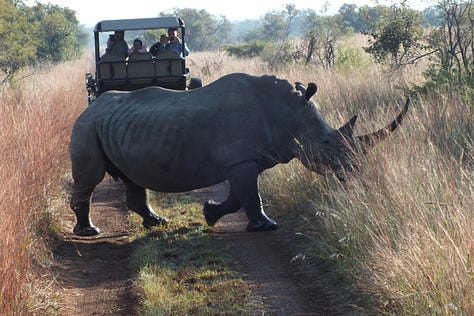


And so I continued my sojourn at the game park, free to savor the birds, beasts, bones and banter; it seems that these places are just as much about the people as anything else. One evening at the ‘the watering hole’ I traded brief histories of the U.S. and South African auto industries and notes on the two countries’ many similarities (even beyond their zeal for large vehicles) with Gert and Heinrich. In other exchanges, I heard accounts of the growing pains of the state-owned railroad from my neighbors Johan and Adelle; took in Koketso’s assessment of seasonal fluxes in tourism; processed lurid descriptions of the hunting habits of the grey-headed bushshrike and a tally of the local snakes from Marco, the resident handler; and heard Sam’s harrowing story of trying to stay cool while having his range rover assaulted by a bull elephant during a game drive as the paying-customers stood by with their video apps rolling. Evidently, life as a game reserve guide isn’t always as glamorous as it’s cracked up to be.
Now I’m back in Nkangala (once again stocking up on rice and sorghum by the kilo) — to forge ahead with the second term of school and year of service…and whatever they may hold in store.
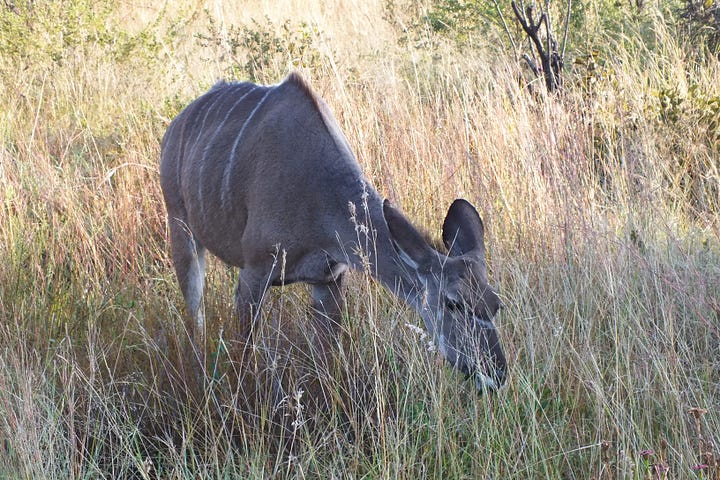
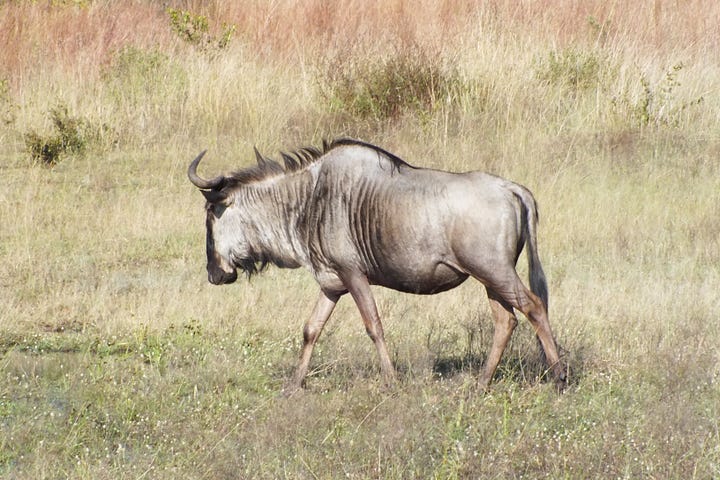
An appeal to readers — as ‘A View from the Veld’ enters its second year on-line — its author is starting to feel the creep of acute symptoms of bloggers’ block. Things aren’t quite as novel as they were a year or so back and inspiration can lag at times. So if there is something that you’d like to hear about, or think I’ve neglected to address over the year, feel free to let me know.

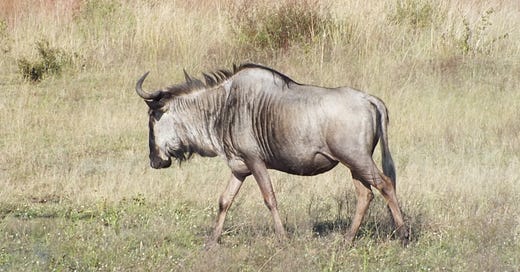


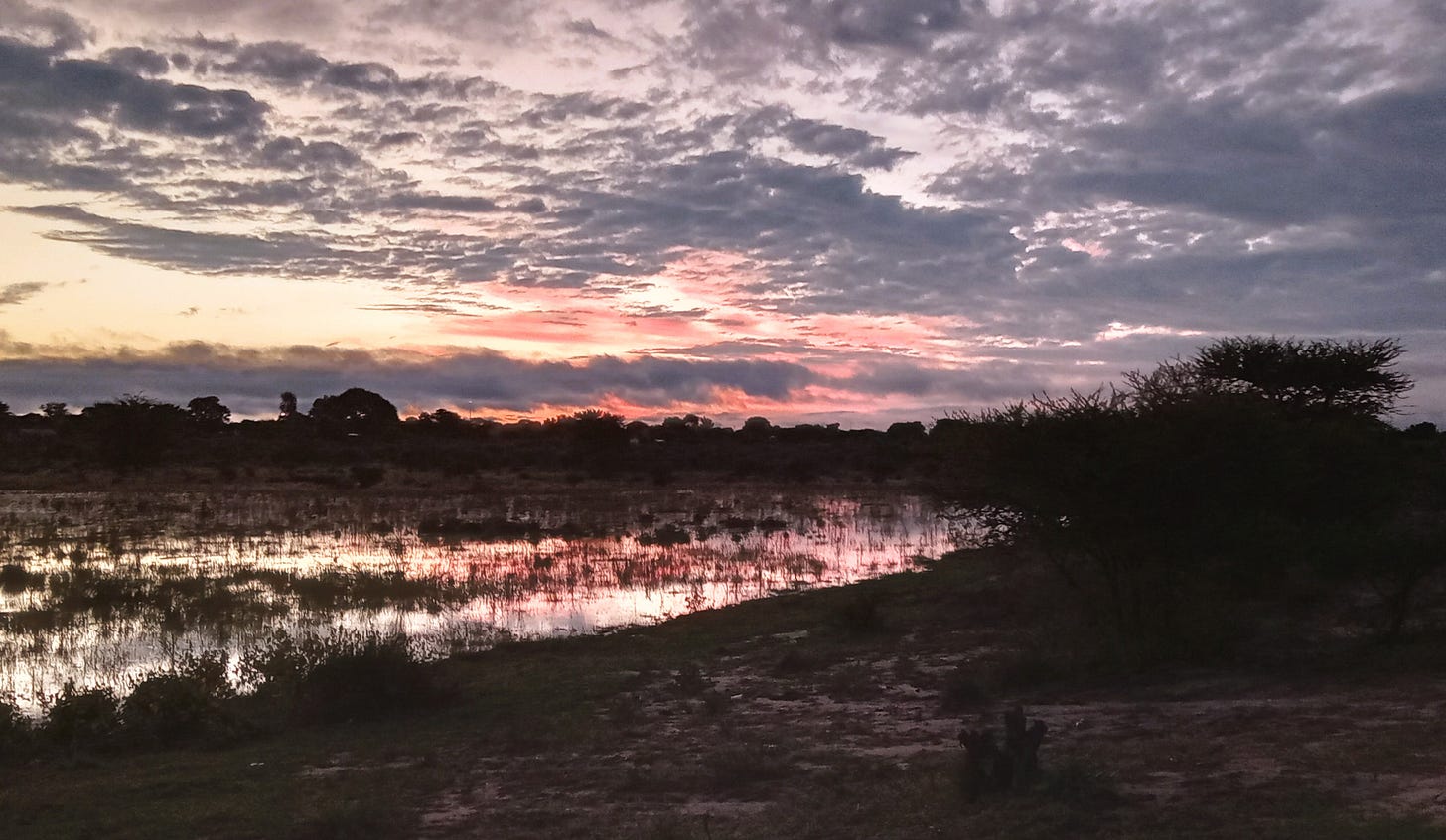
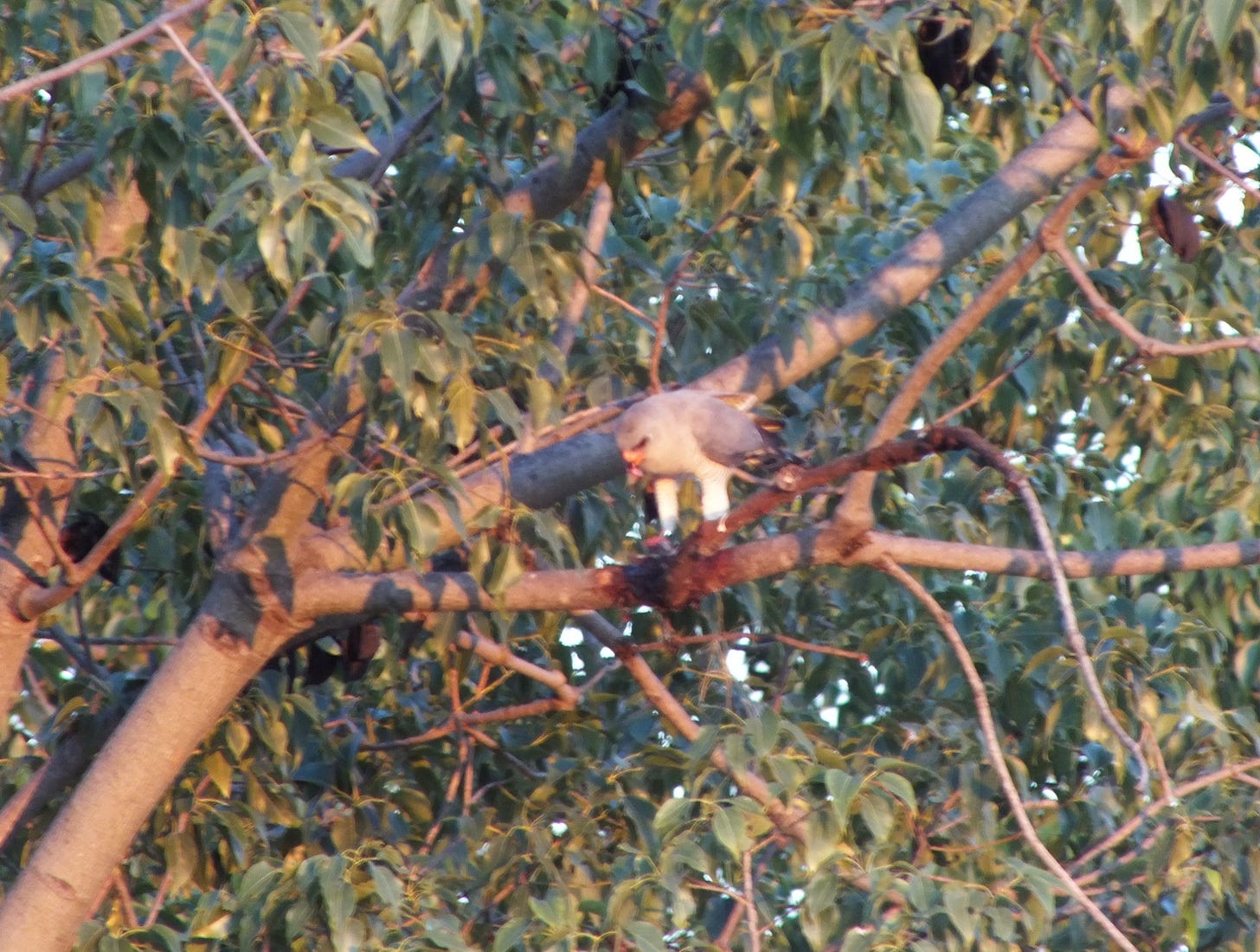
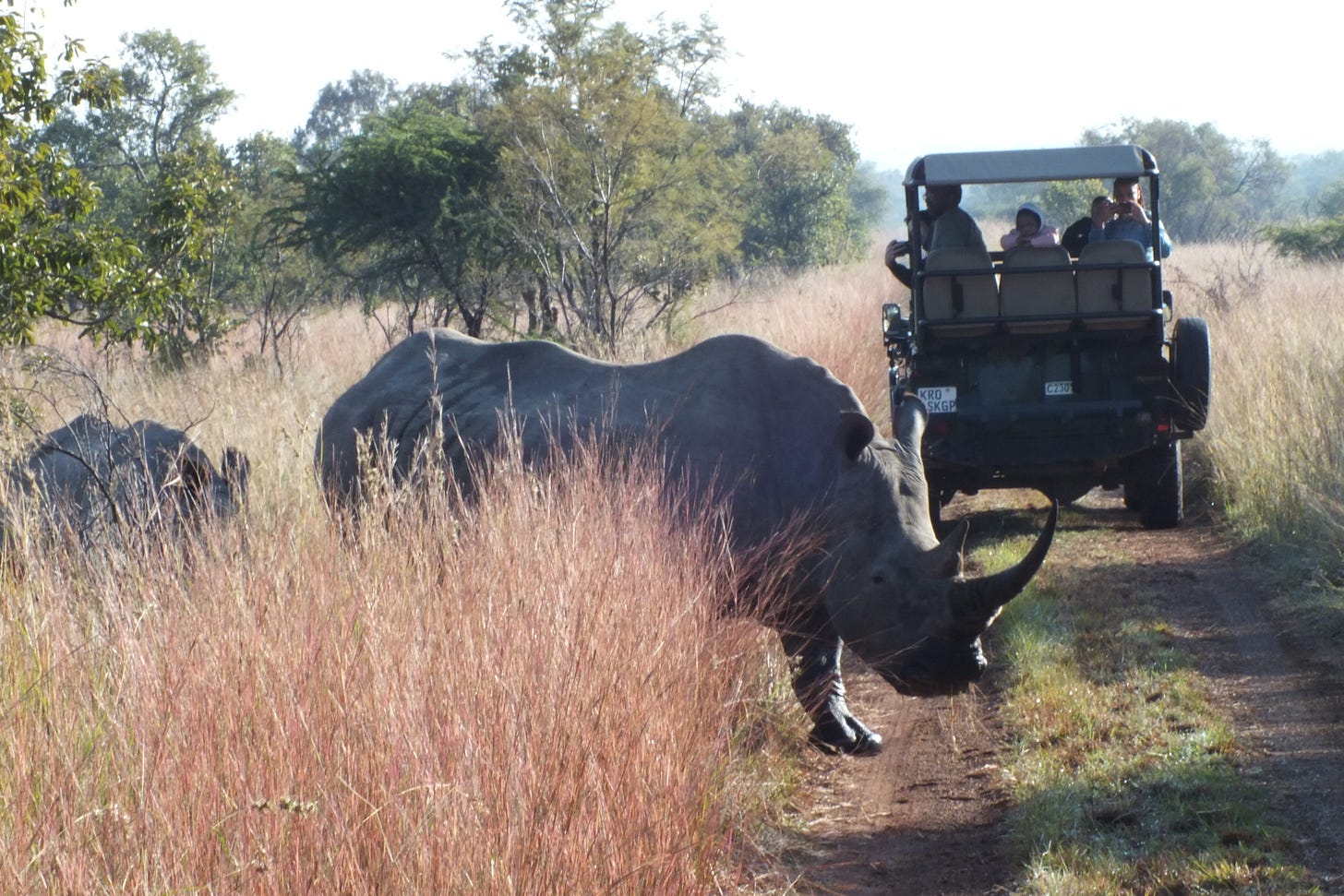

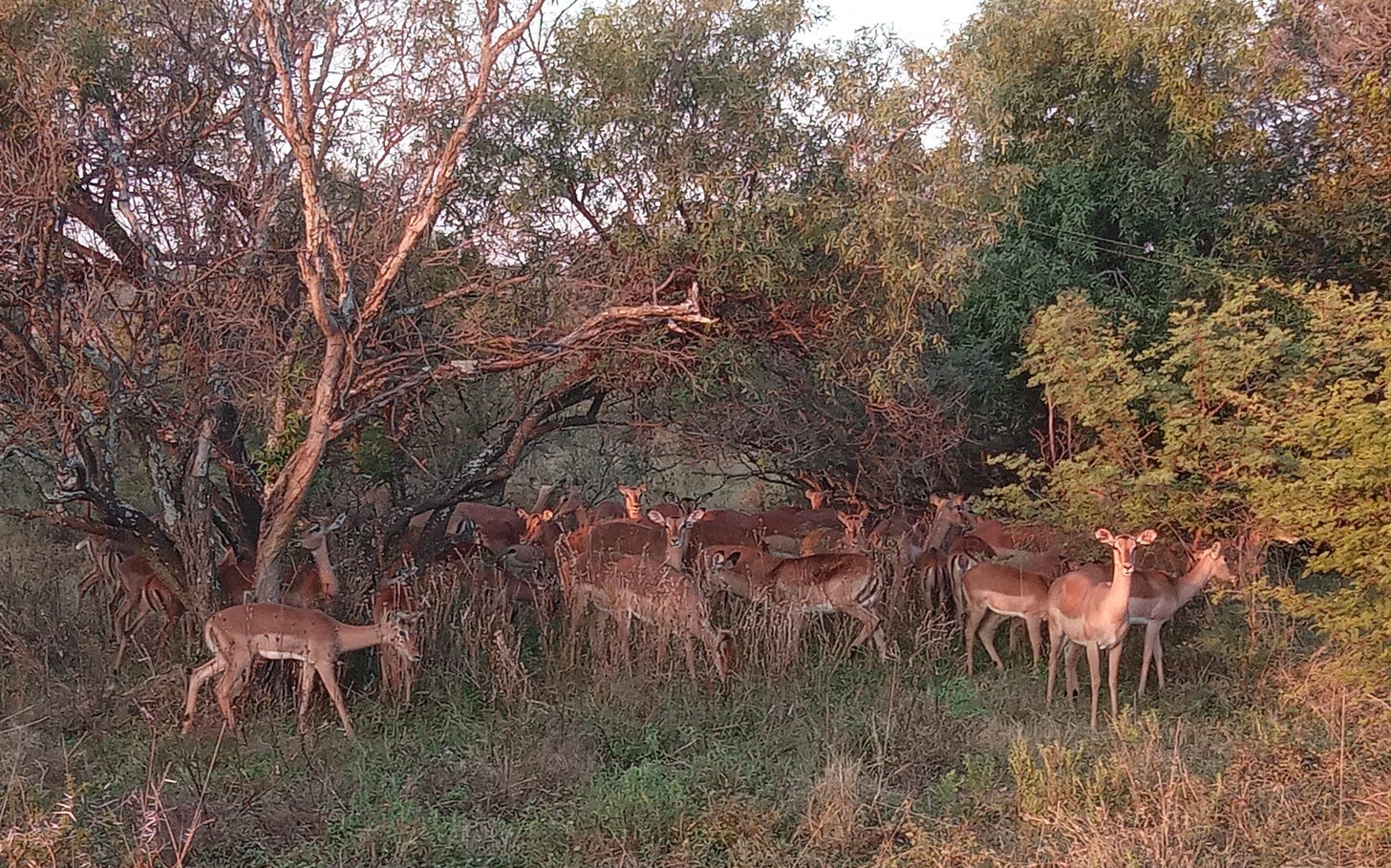
Hi Scott -- you've got a point on the hawks -- you must say, however, that that word has a nice ring to it anyway. Thanks for your ideas on subjects -- should keep me busy for a while.
dj
Hi Drew,,
Been anticipating your next missive and wasn't disappointed. Thanks for the story. I wonder, do goshawks munch? Haha. Maybe that's a philosophical question.
To your query, remember none (few) of us have experienced anything like what you are doing. It's fascinating, even the simplest and most mundane activities. You are 60 and living in and teaching kids in a South African village. You could describe the challenges of brushing your teeth and it would be fascinating. You are far from out of material.
But here's a thought: how about telling us more about the individual learners and local teachers. Who are they? What do they like to do? What
are their dreams? Their experiences? Maybe they would like to offer a paragraph or a short story about their lives, and you could compile them. Maybe it's a useful pedagogical exercise. Or you could talk more about them. I'm sure some of them have moved you, changed you, surprised you,
impressed you. Tell us more about their
stories. I wish I could meet
them.
But really anything at all is fascinating. Pick a day and walk us through it play by play. Or what is the cat up to?
Whatever you write about, know that we are riveted so keep writing.
Thanks Drew,
Scott B